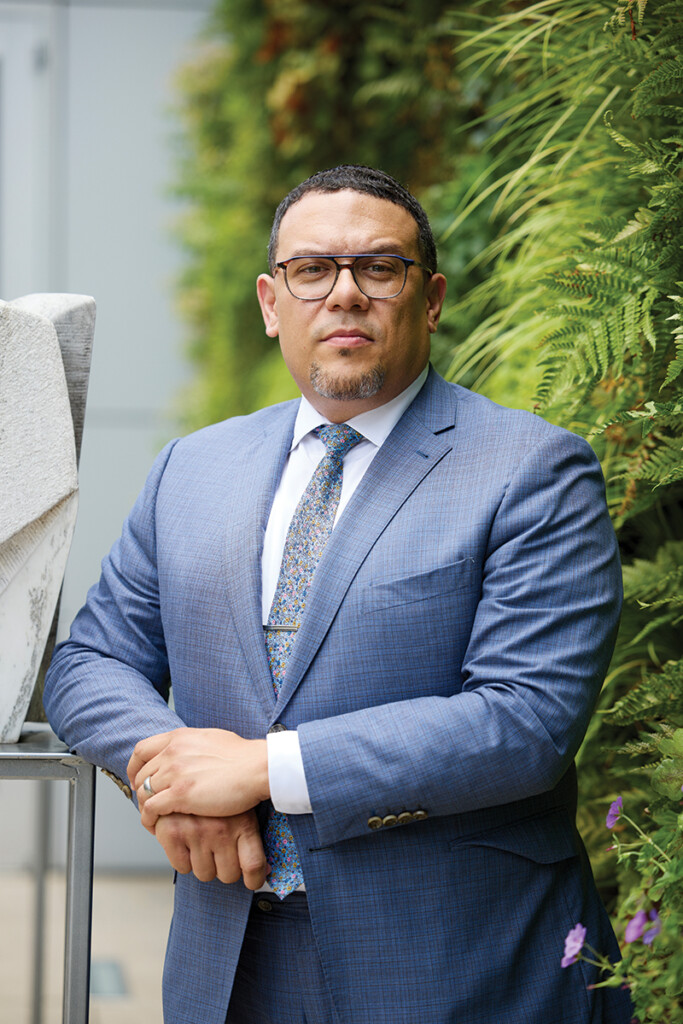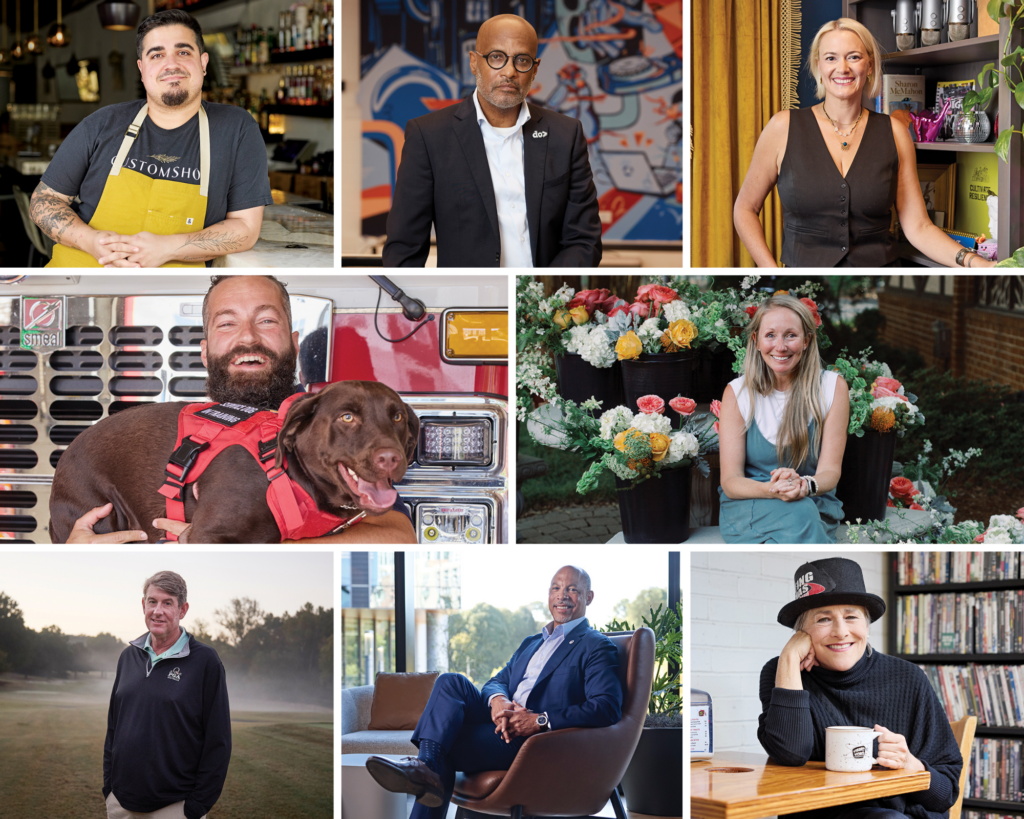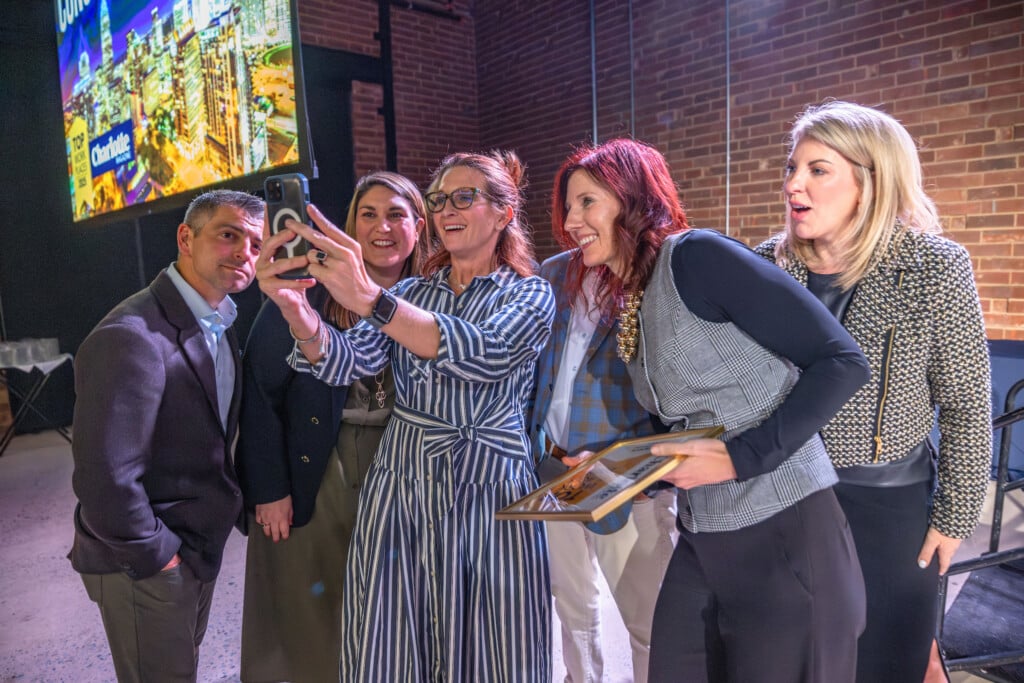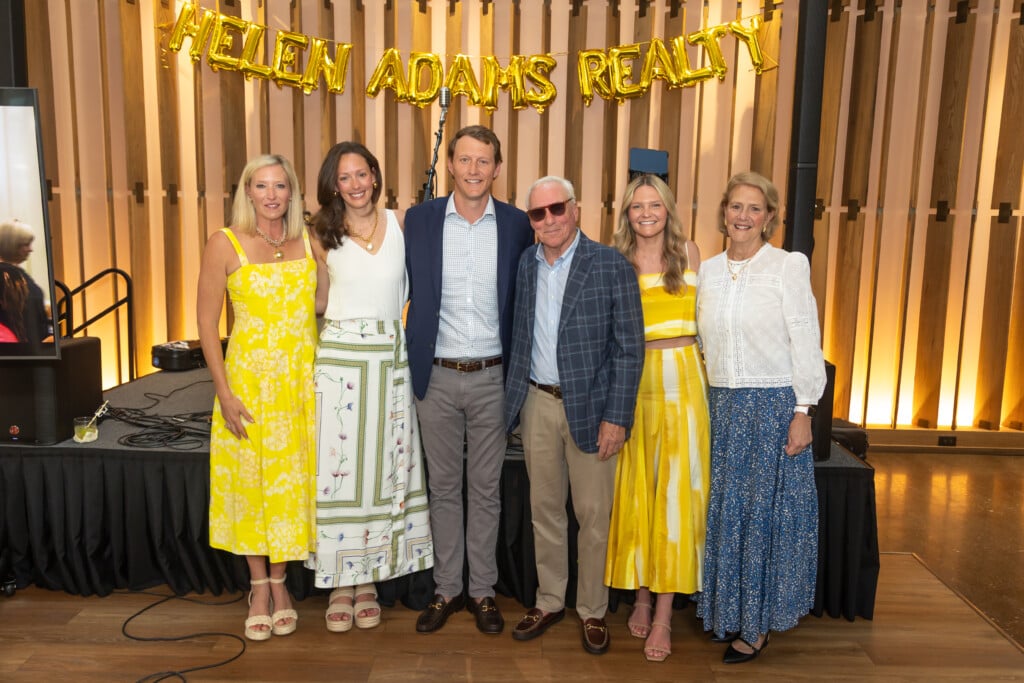Life Lessons: Foundation For The Carolinas’ Federico Rios
The new Robinson Center VP wants to open doors for Charlotteans, as others did for him.

In April, Federico Rios joined Foundation For The Carolinas—the region’s biggest and most influential philanthropic group—as senior vice president of its Robinson Center for Civic Leadership. The Robinson Center directs FFTC’s investment in local initiatives and rallies local leaders with disparate interests to collaborate on big issues like community development, economic opportunity, and education. It’s Rios’ job to bring those leaders together to have tough conversations and lead them toward common goals.
Rios, 42, brings valuable personal experience to the job. He grew up in poverty in Queens. His dad, Alejandro, dropped out of school before the sixth grade in Puerto Rico. Alejandro’s abusive father kicked him out of the house when he was a teenager, and he came to the U.S. and worked as a handyman and cook before he was permanently disabled in a work accident when Rios was 5. Rios’ mother, Sofia, immigrated from Colombia in 1969. She had only a high school education, never learned English, and worked in the same food-prep job for her entire life in the U.S. The couple struggled to navigate the American education system for Rios and his older brother, but they made repeated sacrifices so their sons would have better lives.
“I owe my parents everything,” Rios tells me over Zoom in July. His eyes frequently dart above the screen to the wall of family pictures just out of view. Behind him is a 126th Street sign, a reference to where he grew up in Queens. “We were the working-class poor. … But my parents made some really crucial investments. They knew that if I was going to make it in this country that I had to go to school.”
As an adult, Rios has dedicated his professional life to helping others like his own family. He graduated with an English degree from Stony Brook University on Long Island and worked in social services and education in New York City before he and his wife moved to Charlotte in 2007. Rios worked a series of short-term jobs, including as a Title I tutor, before Communities In Schools of Charlotte Mecklenburg hired him in 2009 to serve as a site coordinator for Hidden Valley Elementary School. After three years in that role, he became the program director, and CMS asked him to design a program for students from Central America. In 2018, the City of Charlotte hired him first to serve as its international and integration manager, then as the first assistant director of its new Office of Equity, Mobility, and Immigrant Integration.
“Throughout that time, from CIS to the city, I engaged with Foundation For The Carolinas in many ways,” Rios says. “When this role opened, I couldn’t think of a better way to continue serving our community and addressing the needs of all the people who really need service, who really need a cohesive system, who really need access.”
Rios’ words have been edited for length and clarity.
My parents wanted me to go to college but didn’t really know what it took to get there. The little information they had on the public school system was that it wasn’t good, so they sent my brother and I to the Catholic school on our block. It was a big investment on their part. I remember the nuns always being mad because their monthly bill was always late.
I got into one college. It was a private school, and it was exorbitantly expensive. My mom took out a loan against her salary, and she went additional years to work to cover that loan. And it was the dumbest decision ever. … Somebody should’ve told me to go to community college.
I did that for a year before I realized it was too expensive. I came back home and went to work full-time to cover my second year, at another school. Then I finally got into the school I wanted to go to, but I couldn’t take out any more loans, and my parents couldn’t take out any more loans. I needed to get a co-signer, so I called my cousin, Gabriel, and asked him if he could co-sign. He couldn’t because he was in the process of purchasing a condominium. This was August of 2001.
Fast-forward a couple weeks, and 9/11 happens. And his wife was in the second tower. I raced from Long Island to New York, stayed with him … I was there for him during that time.
Several weeks later, I went back to school not really thinking any more about, Oh yeah, I have to pay for this. Then Gabriel called and said, “Emy (his wife) worked for a fiduciary organization that offered her significant insurance. With the insurance proceeds, I’ll pay for the rest of your college education.” I’m here because so many people sacrificed and just did ridiculous things for me.
I got married at 23, then my wife and I left New York in 2007—in part for a fresh start and in part (because) we couldn’t afford living in New York. … The guy who’s now my brother-in-law told us we should check out Charlotte.
I was 24 or 25 when we moved to Charlotte, and my wife was six months pregnant. I didn’t have a job lined up. Craziest thing I’ve ever done in my life. Within a two-year span, I lost three jobs and experienced, firsthand, Charlotte’s poverty. I was on a trajectory in New York. I was getting my master’s degree subsidized by the City of New York. I was a New York City Teaching Fellow. I had been on an upward trajectory, then I got here and flatlined.
Charlotte took me from being the one that helped people to being the one that needed to be helped. I was highly skilled, had a bachelor’s degree, and spoke two languages. My first year in Charlotte, our household made $33,000.
At Hidden Valley, I was serving parents much like my own, who really didn’t have the wherewithal to navigate the school system, were new to the U.S. in most instances, and were just trying to figure it out. Or families like the families I grew up alongside, that were just stuck in poverty. And that experience just kind of made me fall in love with Charlotte.
My personal experience in poverty and working with folks in poverty informs how I view the work. … I hope to get us to a place where we are, as an organization and as a community, less reactive and more proactive around really envisioning what it is we want the community to be.
There are things that we all agree on, in spite of political differences. We all want certain things for ourselves, for our children, for our neighbors. So how do we work off those consensus points?
There are things that I don’t think we’ve spent enough time digging in deep on. Aspects of segregation and how that shows up. How is poverty changing who the community is, and where do the impoverished go? As this becomes a less affordable place, where do the people that we really need go?
My washer and dryer broke recently, and I found myself at a laundromat. I hadn’t done that in 20 years. And poverty is freakin’ expensive. It cost me so much to do this basic thing. And I just sat, and I kept thinking about the person who doesn’t have access to a vehicle in a city that’s really built only for vehicles. How would you even navigate? My job is going to be about really spending time better informing the community on what that looks like.
People move to Charlotte, and they remain an Ohioan or a Californian or a New Yorker. They are not a Charlottean. Why is that? Why do we not become this community? Is it the siloed nature of this community where you never feel like you’re really in it? How do we help people feel like they identify with this place? This is the stuff I’m thinking about.
There was a time in my life here in Charlotte where I thought we were oversaturated with nonprofits. But I’ve changed my thinking on that. I think it’s actually a testament to the amount of willing hands there are in this community. I think the challenge for a role like mine is, how do we direct those hands?
I want to spend time strengthening the nonprofit ecosystem. … And it is an ecosystem. You can’t do away with a piece of it. You can’t say, “Oh, I don’t need this plant.” That plant is vital for the entire ecosystem, and if that thing is gotten rid of, how does it impact us all? I want to help people understand the interconnectedness of all the pieces.
There is no end goal. It’s about consistent improvement.
In this community, we fault people … for where they are in their lives. “Oh, you made bad decisions. You did this wrong.” And we don’t take into account how we ended up where we are. These pedestals of privilege that we exist on, we didn’t earn. We lucked out. Yeah, maybe … we worked really hard and understood the system. But by and large, it was happenstance, or it was people that chose to give to you, whether it was their social capital or they opened a door for you in some capacity. And still, we can be very intentional about how we mete out what we have received.
In Charlotte, we rally around a thing in a way I just don’t see others doing. Even in our complaints, we’re more unified. And it’s a testament to the fact that, even though we don’t call ourselves Charlotteans, we very much take on the ethos of what it means to be in this place.
I’m invested in this community. My children were born here, and I want to know that what happened, what the Leading on Opportunity report and what the Chetty study shined a light on, doesn’t happen again. That we don’t leave behind the persons born here. That we create a system that affords them opportunity. Again, we have a lot of willing hands. … If I am even remotely successful at getting people to think about how to collaborate—if I can get people talking in that way, to share that language, then I think we’ll be in a much better place as a community.
TESS ALLEN is the associate editor.





